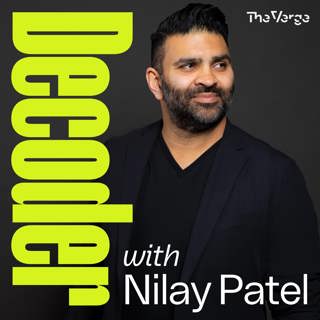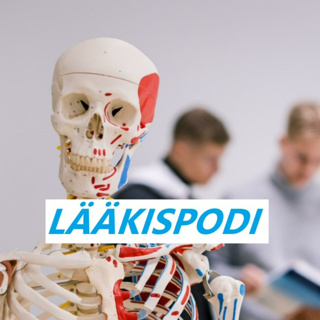
How AI copyright lawsuits could make the whole industry go extinct
Our new Thursday episodes are all about deep dives into big topics in the news, and for the next few weeks we’re going to stay focused on one of the biggest topics of all: generative AI. There’s a lot going on in the world of generative AI, but maybe the biggest is the increasing number of copyright lawsuits being filed against AI companies like OpenAI and StabilityAI. So for this episode, we’re going to talk about those cases, and the main defense the AI companies are relying on: an idea called fair use. To help explain this mess, I talked with Sarah Jeong. Sarah is a former lawyer and a features editor here at The Verge, and she is also one of my very favorite people to talk to about copyright. I promise you we didn’t get totally off the rails nerding out about it, but we went a little off the rails. The first thing we had to figure out was: How big a deal are these AI copyright suits? Links: The New York Times sues OpenAI and Microsoft for copyright infringement --- The Verge The scary truth about AI copyright is nobody knows what will happen next — The Verge How copyright lawsuits could kill OpenAI — Vox How Adobe is managing the AI copyright dilemma, with general counsel Dana Rao --- The Verge Generative AI Has a visual plagiarism problem - IEEE Spectrum George Carlin estate sues creators of AI-generated comedy special — THR AI-Generated Taylor Swift porn went viral on Twitter. Here's how it got there — 404 Media AI copyright lawsuit hinges on the legal concept of ‘fair use’ — The Washington Post Intellectual property experts discuss fair use in the age of AI — Harvard Law School OpenAI says it’s “impossible” to create useful AI models without copyrighted material — Ars Technica Credits: Decoder is a production of The Verge and part of the Vox Media Podcast Network. Today’s episode was produced by Kate Cox and Nick Statt and was edited by Callie Wright. The Decoder music is by Breakmaster Cylinder. Learn more about your ad choices. Visit podcastchoices.com/adchoices
15 Helmi 202440min

DOJ’s Jonathan Kanter says the antitrust fight against Big Tech is just beginning
Today, I’m talking with Jonathan Kanter, the Assistant Attorney General in charge of the Antitrust Division at the Department of Justice. Alongside FTC chair Lina Khan, Jonathan is one of the most prominent figures in the big shift happening in competition and antitrust in the United States. This is a fun episode: we taped this conversation live on stage at the Digital Content Next conference in Charleston, South Carolina a few days ago, so you’ll hear the audience, which was a group of fancy media company executives. You’ll also hear me joke about Google a few times; fancy media execs are very interested in the cases the DOJ has brought against Google for monopolizing search and advertising tech — and Jonathan was very good at not commenting about pending litigation. But he did have a lot to say about the state of tech regulation, he and Khan’s track record so far, and why he thinks the concepts they’re pushing forward are more accessible than they’ve ever been. Links: The top Biden lawyer with his sights on Apple and Google — Politico Judge blocks a merger of Penguin Random House and Simon & Schuster — NYT FTC’s Khan and DOJ’s Kanter beat back deals at fastest clip in decades — Bloomberg Google will face another antitrust trial September 9th, this time over ad tech — The Verge In the Google antitrust trial, defaults are everything and nobody likes Bing — The Verge Google Search, Chrome, and Android are all changing thanks to EU antitrust law — The Verge Aggregation Theory — Stratechery Adobe explains why it abandoned the Figma deal — The Verge How the EU’s DMA is changing Big Tech — The Verge Epic Games CEO calls out Apple’s DMA rules as ‘malicious compliance’ — TechCrunch Transcript: https://www.theverge.com/e/23831914 Credits: Decoder is a production of The Verge and part of the Vox Media Podcast Network. Today’s episode was produced by Kate Cox and Nick Statt and was edited by Callie Wright. The Decoder music is by Breakmaster Cylinder. Learn more about your ad choices. Visit podcastchoices.com/adchoices
12 Helmi 202434min

Why EV adoption in the US has hit a roadblock
We’re very excited for today’s episode, because from now on we’ll be delivering you two Decoders every week. On Monday’s we’ll have our classic interviews with CEOs and other high-profile guests. But our new shorter Thursday episode – like today’s – will explain big topics in the news with Verge reporters, experts, and other friends of the show. The big idea we’re going to jump into today does in fact have a lot of problems: electric vehicle adoption in the US. We invited Verge Transportation Editor Andy Hawkins, who’s been covering the EV transition for years, to walk us through what’s happening. Late last year, Andy wrote a fantastic article called, “The EV Transition trips over its own cord.” It was all about the kind of paradox of the EV market right now: The momentum for electric cars in America feels like it’s started to hit serious snags, even though more people than ever before are going fully electric. The stakes are high, and there’s a lot going on. Let’s get into it. Links: The EV transition trips over its own cord — The Verge We’re down to just a handful of EVs that qualify for the full US tax credit — The Verge Electric cars were having issues. Then things got political — WSJ Tesla is becoming a partisan brand, says survey — Eletrek 16 Republican governors urge Biden EPA to roll back proposed electric vehicle standards — USA Today Slow rollout of national charging system could hinder EV adoption — NYT Want to stare into the Republican soul in 2023? — Slate Biden vetoes Republican measure to block electric vehicle charging stations — NYT The Biden administration is pumping more money into EV charging infrastructure — The Verge GM should just bring back the Chevy Volt — The Verge Credits: Decoder is a production of The Verge and part of the Vox Media Podcast Network. Today’s episode was produced by Kate Cox and Nick Statt and was edited by Callie Wright. The Decoder music is by Breakmaster Cylinder. Learn more about your ad choices. Visit podcastchoices.com/adchoices
8 Helmi 202442min

Platformer’s Casey Newton on surviving the great media collapse and what comes next
Today, I’m talking with Casey Newton, the founder and editor of the Platformer newsletter and co-host of the Hard Fork podcast. Casey is also a former editor here at The Verge and was my co-host at the Code Conference last year. Most importantly, Casey and I are also very close friends, so this episode is a little looser than usual. I wanted to talk to Casey for a few reasons. One, the media industry overall is falling apart, with huge layoffs at almost every media organization you can think of happening weekly, but small newsletters seem to be a bright spot. So I wanted to talk about how Platformer started, how Casey got it to where it is, and how much farther he thinks it can go. And then, I wanted to talk about Substack. It’s the newsletter platform Paltformer used to call its home, but content moderation problems — including its decision to allow Nazis to monetize on the platform — have pushed away a number of its customers, including Platformer. This episode goes deep, but it’s fun — Casey is just one of my favorite people, and he is not shy about saying what he thinks. Links: Can Substack CEO Chris Best build a new model for journalism? — The Verge Substack launches its Twitter-like Notes — The Verge Substack Has a Nazi Problem — The Atlantic Substack says it will remove Nazi publications from the platform --- Platformer Substack keeps the Nazis, loses Platformer — The Verge Why Platformer is leaving Substack — Platformer The Messenger to close after less than a year — The New York Times Do countries with better-funded public media also have healthier democracies? — Nieman Lab AI is killing the old web, and the new web struggles to be born — The Verge The Biden deepfake robocall Is only the beginning — WIRED Transcript: https://www.theverge.com/e/23823565 Credits: Decoder is a production of The Verge and part of the Vox Media Podcast Network. Today’s episode was produced by Kate Cox and Nick Statt and was edited by Callie Wright. The Decoder music is by Breakmaster Cylinder. Learn more about your ad choices. Visit podcastchoices.com/adchoices
5 Helmi 20241h 8min

Why Sen. Brian Schatz thinks child safety bills can trump the First Amendment
Today, I’m talking with Senator Brian Schatz, of Hawaii. We joke that Decoder is ultimately a show about org charts, but there’s a lot of truth to it. We talked about the separate offices he has to balance against each other, and the concessions he has to make to work within the Senate structure. We also talked a lot about two of the biggest issues in tech regulation today. One is Europe, which is doing a lot of regulation while the US does almost none. How does a senator think about the U.S. all but abdicating that space? The other is one of the few places the US is trying to take action right now: children’s online safety. Schatz is involved with two pieces of child safety legislation, the Kids Online Safety Act and the Protecting Kids on Social Media Act, that could fundamentally reshape online life for teens and children across the country. But the big stumbling block for passing any laws about content moderation is, of course, the First Amendment. Links: Strict Scrutiny — LII / Legal Information Institute The Uniquely American Future of US Authoritarianism — WIRED How the EU’s DMA is changing Big Tech: all of the news and updates — The Verge AI Labeling Act of 2023 (S. 2691) — GovTrack.us Mark Zuckerberg testimony: senators seem really confused about Facebook — Vox Big Tech and the Online Child Sexual Exploitation Crisis — Senate Judiciary Committee AI tools will make it easy to create fake porn of just about anybody — The Verge They thought loved ones were calling for help. It was an AI scam — The Washington Post. Protecting Kids on Social Media Act (S, 1291) — GovTrack.us Kids Online Safety Act (S. 1409) — GovTrack.us Kids Online Safety Shouldn’t Require Massive Online Censorship and Surveillance — EFF TikTok ban: all the news on attempts to ban the video platform — The Verge Transcript: https://www.theverge.com/e/23818699 Credits: Decoder is a production of The Verge and part of the Vox Media Podcast Network. Today’s episode was produced by Kate Cox and Nick Statt and was edited by Callie Wright. The Decoder music is by Breakmaster Cylinder. Our Executive Producer is Eleanor Donovan. Learn more about your ad choices. Visit podcastchoices.com/adchoices
30 Tammi 20241h 9min

Rep. Ro Khanna on what it will take for Congress to regulate AI, privacy, and social media
Today, I’m talking with Representative Ro Khanna, a Democrat from California. He’s been in Congress for eight years now, representing California’s 17th District, which is arguably the highest-tech district in the entire country. You’ll hear him say a couple of times that there’s $10 trillion of tech market value in his district, and that’s not an exaggeration: Apple, Intel, and Nvidia are all headquartered in his district, along with important new AI firms like Anthropic and OpenAI. I wanted to know how Khanna thinks about representing those companies but also the regular people in his district; the last time I spoke to him, in 2018, he reminded me that he’s got plenty of teachers and firefighters to represent as well. But the politics of tech have changed a lot in these past few years — and things are only going to get both more complicated and more tense as Trump and Biden head into what will obviously be a contentious and bitter presidential election. Links: Democrats must not repeat the mistakes of globalization California bill to ban driverless autonomous trucks goes to Newsom's desk In labor snub, California governor vetoes bill that would have limited self-driving trucks A lawyer used ChatGPT and now has to answer for its ‘bogus’ citations Barack Obama on AI, free speech, and the future of the internet Music streaming platforms must pay artists more, says EU Sideloading and other changes are coming to iOS in the EU soon Clock running out on antitrust bill targeting big tech Silicon Valley’s Rep. Ro Khanna talks Congress’ plans to regulate Big Tech Trump pushing Microsoft to buy TikTok was ‘strangest thing I’ve ever worked on,’ says Satya Nadella Transcript: https://www.theverge.com/e/23810838 Credits: Decoder is a production of The Verge and is part of the Vox Media Podcast Network. Today’s episode was produced by Kate Cox and Nick Statt and was edited by Callie Wright. The Decoder music is by Breakmaster Cylinder. Our Executive Producer is Eleanor Donovan. Learn more about your ad choices. Visit podcastchoices.com/adchoices
23 Tammi 202454min

How Adobe is managing the AI copyright dilemma, with general counsel Dana Rao
Today, I'm talking to Dana Rao, who is General Counsel and Chief Trust Officer at Adobe. Now, if you're a longtime Decoder listener, you know that I have always been fascinated with Adobe, which I think the tech press largely undercovers. If you're interested in how creativity happens, you're kind of necessarily interested in what Adobe's up to. And it is fascinating to consider how Dana's job as Adobe's top lawyer is really at the center of the company's future. The copyright issues with generative AI are so unknown and unfolding so fast that they will necessarily shape what kind of products Adobe can even make in the future, and what people can make with those products. The company also just tried and failed to buy the popular upstart design company Figma, a potentially $20 billion deal that was shut down over antitrust concerns in the European Union. So Dana and I had a lot to talk about. Links: Adobe abandons $20 billion acquisition of Figma Adobe explains why it abandoned the Figma deal Why Figma is selling to Adobe for $20 billion, with CEO Dylan Field Figma’s CEO laments demise of $20 billion deal with Adobe Adobe proposes anti-impersonation law Adobe’s Dana Rao doesn’t want you to get duped by A The New York Times is suing OpenAI and Microsoft Adobe’s Photoshop on the web launch includes its popular desktop AI tools Transcript: https://www.theverge.com/e/23791239 Credits: Decoder is a production of The Verge, and part of the Vox Media Podcast Network. Today’s episode was produced by Kate Cox and Nick Statt and was edited by Callie Wright. The Decoder music is by Breakmaster Cylinder. Our Executive Producer is Eleanor Donovan. Learn more about your ad choices. Visit podcastchoices.com/adchoices
9 Tammi 20241h 25min

How Donald Trump and Elon Musk killed Twitter, with Marty Baron and Zoe Schiffer
2023 will go down as the year that Elon Musk killed Twitter. First he did it in a big way, by buying the company, firing most of the employees, and destabilizing the platform; then he did it in a small, but important, symbolic way, by renaming the company X and trying to make a full break with what came before. So now that the story of the company named Twitter is officially over, it felt important to stop and ask: What was Twitter, anyway, and why were so many powerful people obsessed with it for so long? In this special episode, I sat down with Marty Baron, former executive editor of The Washington Post, and Zoe Schiffer, managing editor of Platform and author of Extremely Hardcore: Inside Elon Musk’s Twitter. We discussed how two of Twitter’s most dedicated power users – Donald Trump and Elon Musk — were addicted to the platform, defined it, changed it, broke it, and then put it to rest. Links: The year Twitter died: a special series from The Verge Extremely softcore Inside Elon Musk's “extremely hardcore” Twitter How Twitter broke the news Trump vs. Twitter: The president takes on social media moderation Martin Baron recounts leading The Washington Post during the Trump era Credits: Decoder is a production of The Verge and is part of the Vox Media Podcast Network. Today’s episode was produced by Kate Cox and Nick Statt. It was edited by Callie Wright. The Decoder music is by Breakmaster Cylinder. Our Executive Producer is Eleanor Donovan. Learn more about your ad choices. Visit podcastchoices.com/adchoices
21 Joulu 202339min





















